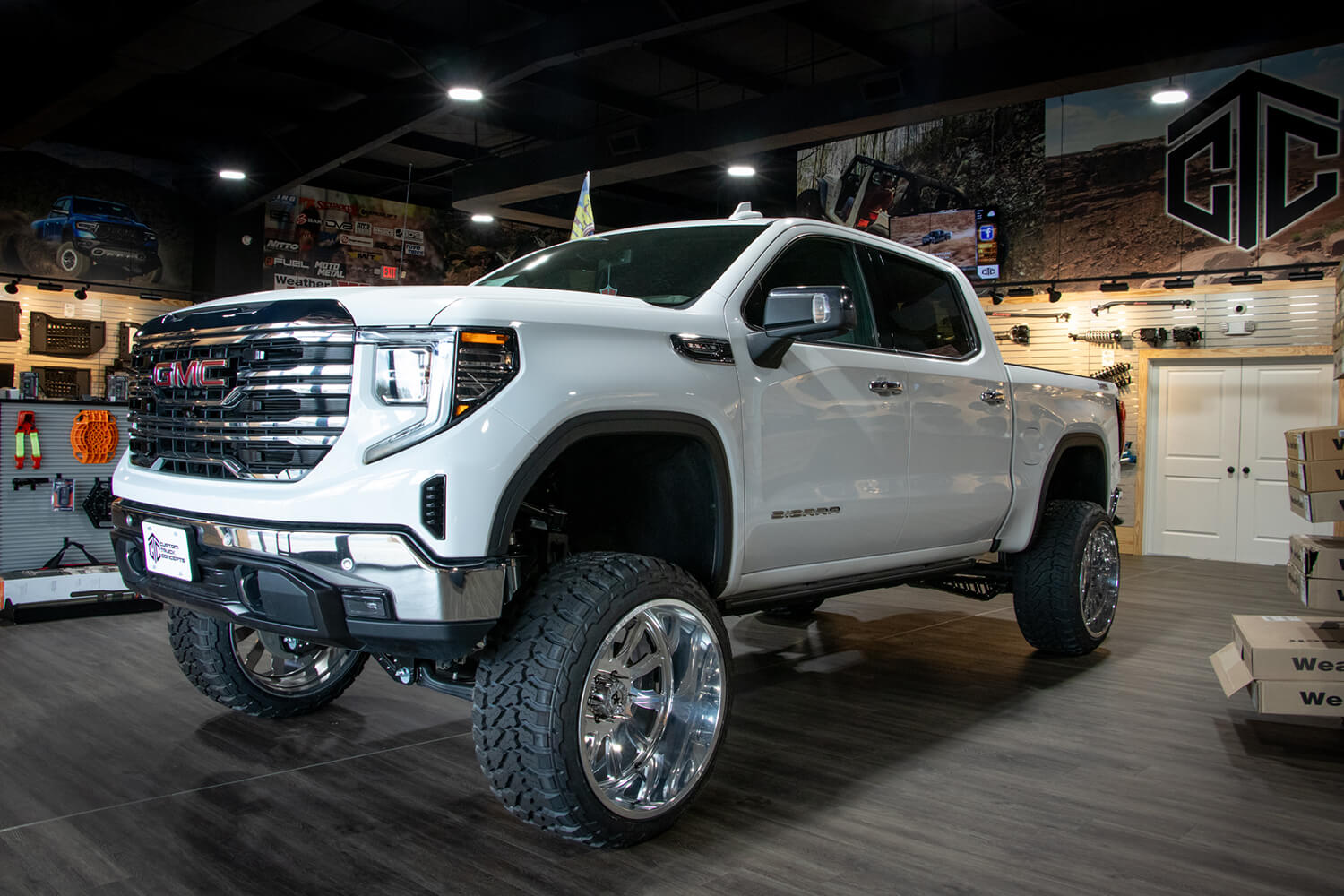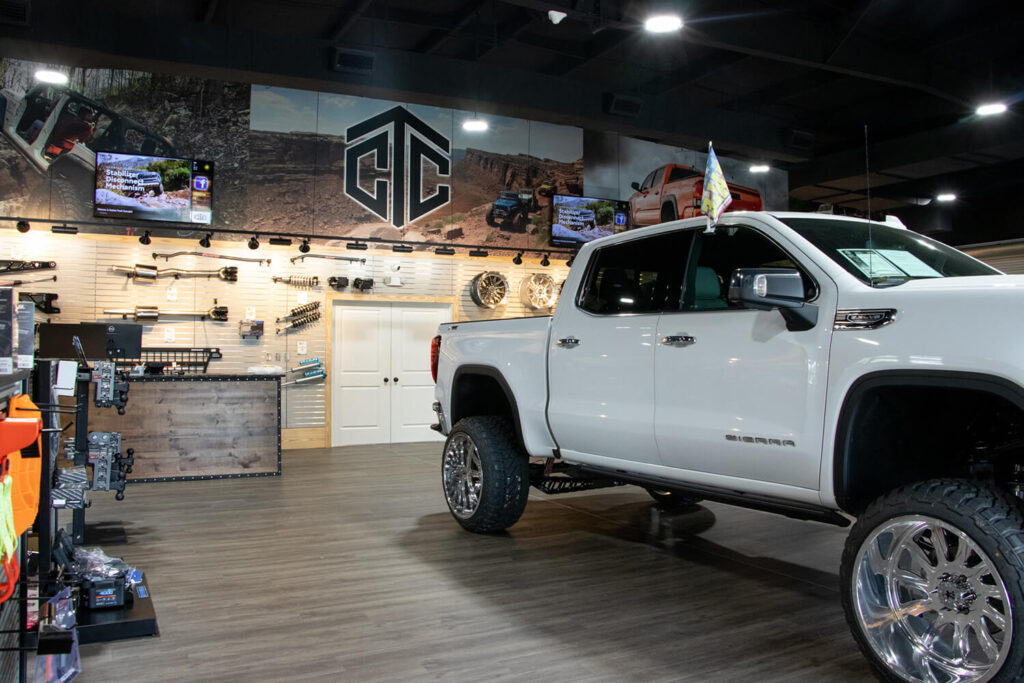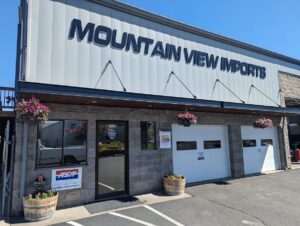
The Ultimate Truck Dealership Guide: What to Know Before You Buy
Purchasing a truck is a significant investment, whether you’re a business owner looking to expand your fleet, a contractor in need of reliable transportation, or simply someone who loves the utility and power that trucks offer. However, buying a truck isn’t as simple as picking the first model you come across. With so many makes, models, and dealerships to choose from, it’s essential to be informed and prepared before making a decision.

This comprehensive Truck Dealership Guide will walk you through the key factors to consider when purchasing a truck, and provide helpful tips on how to make the best choice for your needs.
1. Understand Your Needs
Before stepping foot into a dealership, the most important thing is to understand your needs. Ask yourself the following questions to get a clearer idea of what type of truck you require:
- What is the primary purpose of the truck?
Will you be using it for personal transportation, business, hauling, towing, or off-roading? Your specific needs will determine whether you should look at a light-duty truck, heavy-duty truck, or somewhere in between. - What kind of performance do you need?
Consider horsepower, torque, towing capacity, fuel efficiency, and payload capacity. If you need a truck to haul large loads or tow heavy equipment, you’ll need a model that can handle the stress. - What are your long-term goals?
Are you purchasing a truck for one-time use, or will it be part of a long-term investment? If you plan to use the truck for a business, it might be worth considering the total cost of ownership, including maintenance, repair, and fuel costs.
Taking the time to evaluate these factors will help narrow down your options and ensure you choose the truck that meets your needs.
2. Choosing the Right Type of Truck
The truck market offers a variety of options, and understanding the differences between them is essential to making an informed decision. Some of the most common types of trucks available at dealerships include:
Light-Duty Trucks
Light-duty trucks are typically used for personal transportation and light hauling tasks. They are perfect for everyday driving, offering comfort and fuel efficiency. Common models include the Ford F-150, Chevrolet Silverado 1500, and Ram 1500.
Heavy-Duty Trucks
If you require a truck that can handle heavy loads, a heavy-duty truck may be what you need. These trucks have increased towing capacity, better suspension systems, and more powerful engines. Examples of heavy-duty trucks include the Ford F-250 and Chevrolet Silverado 2500HD.
Commercial Trucks
For businesses needing transportation for goods or equipment, commercial trucks are designed with larger cargo beds and increased payloads. If you’re looking to buy a fleet of trucks for business purposes, a commercial dealership might offer specialized options that fit your business needs.
Off-Road Trucks
If you plan to use your truck in challenging environments or outdoor adventures, off-road trucks with enhanced suspension and all-terrain capabilities might be the ideal choice. Models like the Toyota Tacoma TRD Pro or Jeep Gladiator are equipped to handle rough terrains.
3. Consider New vs. Used Trucks
When purchasing a truck, you’ll have the option of choosing between new or used models. Each option has its pros and cons:
New Trucks
Buying a new truck has the advantage of getting the latest features, warranties, and the assurance of a brand-new condition. New trucks also have the latest technological advancements, such as enhanced fuel efficiency, improved safety features, and infotainment systems.
However, new trucks tend to be more expensive, and their value depreciates rapidly once driven off the lot.
Used Trucks
Used trucks are more affordable and allow you to get more truck for your money. If you choose a well-maintained, certified pre-owned (CPO) truck, you can still enjoy a reliable vehicle. The downside is that you might not get the latest features, and there’s always the risk of hidden problems with a used truck. However, certified pre-owned vehicles often come with warranties that help reduce the risk.
4. Research Truck Dealerships
Finding the right dealership is just as important as finding the right truck. Take the time to research dealerships in your area, both online and through reviews. Here are some factors to consider:
- Reputation and Reviews: Look for dealerships with positive reviews and ratings. Customer experiences can tell you a lot about how a dealership operates and their customer service standards.
- Selection: Choose a dealership that offers a wide selection of trucks, both new and used. The more options you have, the better chance you’ll have of finding the right model for you.
- Financing Options: Many truck dealerships offer in-house financing or work with banks to provide loans. Check for financing terms, interest rates, and loan periods that suit your budget. A dealership that offers flexible financing options can make the buying process much smoother.
- Customer Service: Evaluate the dealership’s customer service. Are they responsive? Do they offer helpful information and clear answers? A good dealership will guide you through the purchasing process, answer your questions, and make you feel comfortable.
5. Negotiate the Price and Terms
When you’re ready to negotiate, it’s important to come prepared. Arm yourself with knowledge about the market value of the truck you’re interested in and any promotions or discounts the dealership may be offering. Don’t be afraid to negotiate the price, as dealerships often have some flexibility.
Additionally, ask about extended warranties, additional fees, and other costs that may come with the truck. A transparent breakdown of the costs can help you avoid unexpected expenses down the road.
6. Test Drive and Inspection
Before finalizing your purchase, always test drive the truck. A test drive gives you a chance to experience the truck’s comfort, handling, and performance firsthand. Pay attention to how it feels on the road, its acceleration, braking, and overall driving experience.
For used trucks, request a thorough inspection to check for signs of wear and tear, engine condition, and overall reliability. A pre-purchase inspection can help identify potential problems that may not be obvious during a test drive.
Conclusion
Buying a truck is a big decision that requires careful thought and planning. By understanding your needs, choosing the right type of truck, considering new vs. used options, and researching reputable dealerships, you can make an informed decision that meets your requirements.
Don’t rush the process — take the time to explore your options, test drive different models, and negotiate the best deal. A well-researched purchase will provide you with a truck that serves you for years to come, whether for work, recreation, or transportation. Happy truck hunting!

